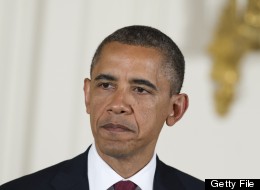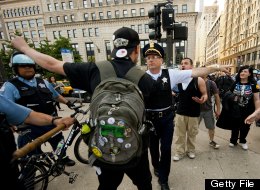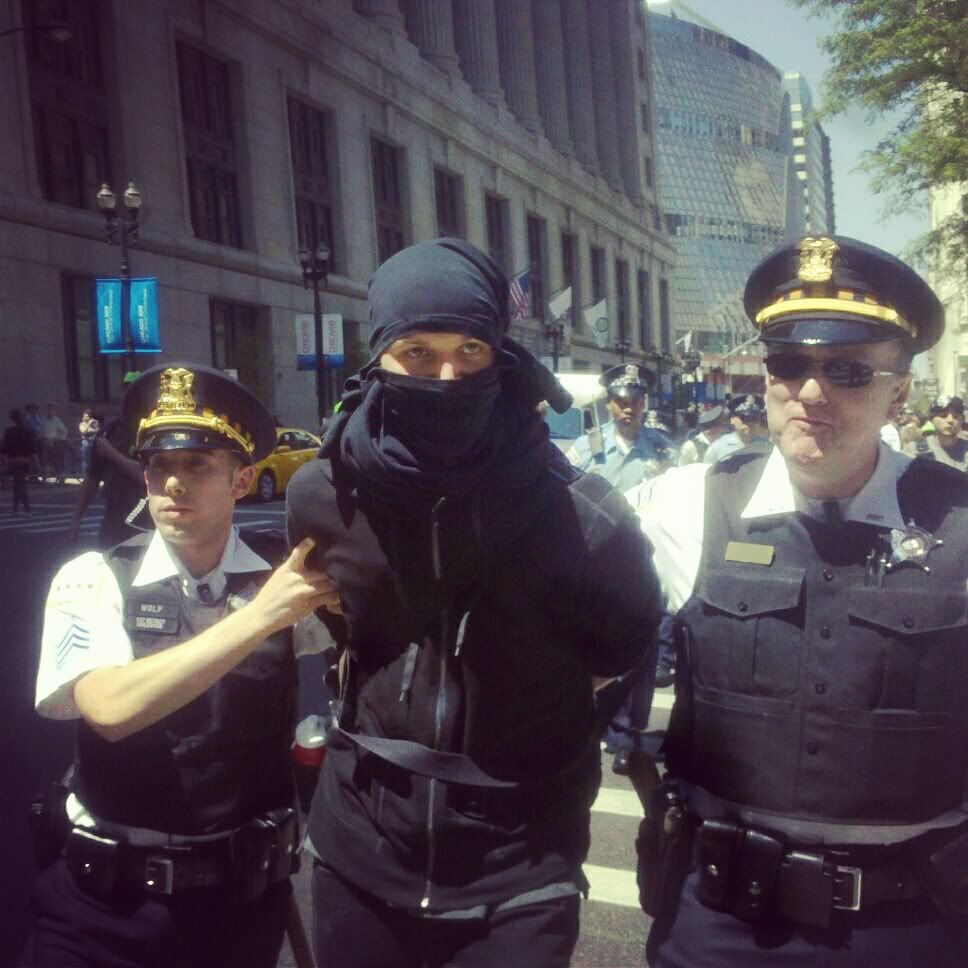In an open letter to Torontonians, Police Chief Bill Blair said Friday he accepts responsibility for the actions of his police service and its members during the G20 summit, but stopped short of an apology.
“I will ensure that the lessons we learn during the G20 are incorporated into our procedures, our training and our future response. I am also fully committed to holding police officers of any rank accountable for misconduct,” the chief said.
“I remain committed to the safety of our city and all its citizens. I remain committed to restoring the confidence of the people we are sworn to serve and protect.”
Blair announced Friday he will take the rare step of bringing in a retired judge and former Crown attorney for the G20-related misconduct hearings. The hearings will be open to the public, as is standard.
He also said he brought eight more applications to the police services board Friday, requesting permission to lay disciplinary charges against officers for their roles during the summit.
About 15 officers will face disciplinary hearings, as some cases involve more than one. They include officers in the high-profile Adam Nobody case, a source told the Star.
The Office of the Independent Police Review Director (OIPRD) has identified five officers who should be charged in the Nobody case.
Eight constables have already been charged under the Police Services Act for alleged G20 misconduct, bringing the total number to about 23.
When the process is complete, 28 frontline officers are expected to face disciplinary action, as well as two senior officers, although it’s unclear whether they were among Friday’s group.
The charges stem from investigative reports completed by the OIPRD, the province’s police complaints watchdog. They “substantiate” allegations of misconduct, meaning the investigators believe there’s enough evidence to prove misconduct occurred.
Police hearings act much like a court of law, where officers may defend themselves against charges levied against them. If the charges — which are not criminal — are upheld, penalties range from docked pay to losing their jobs. Charges filed so far include the use of unnecessary force and unnecessary arrest.
Earlier this week, OIPRD director Gerry McNeilly released a scathing systemic review of the G20, slamming police for poor planning, breaching Charter rights and using excessive force.
The June 2010 summit, which saw a group of black-clad vandals wreak havoc on the downtown core, also resulted in the largest mass arrest in Canadian history.
As revealed in Friday’s Star, the OIPRD has also “substantiated” allegations of misconduct against three senior officers, including Supt. Mark Fenton, the commanding officer who ordered mass arrests and the “unlawful” kettling at Queen St. W. and Spadina Ave. on the final day of the summit.
The other two officers are Supt. Michael Farrar and Staff. Insp. Frank Ruffolo, who were in charge of the prisoner processing facility on Eastern Ave. Both are now retired and so can not face disciplinary hearings.
A fourth senior officer, Insp. Gary Meissner, will face disciplinary action stemming from alleged G20 misconduct.
When reached Friday, Meissner said he has not yet received an official notice of a disciplinary hearing but has been “informally” notified.
It is unclear what allegations of misconduct have been made against Meissner. He politely declined to comment at this time.
“Unfortunately, I can’t,” he said. “I’m sorry, I’m not in a position to do so.”
During the summit, Meissner was the public order unit alpha section commander in charge of deploying the long range acoustical device (LRAD), which can send verbal warnings and also control crowds with pain-inducing tones.
According to the McNeilly’s review, orders were given for the LRAD to be used at 5:43 p.m. on June 26, 2010 at Queen’s Park, shortly after the breakout of violence led by black-clad vandals. Five minutes later, Meissner was making arrests, according to a special operations director quoted in the report.
The report noted, however, that many people failed to hear crowd warnings from the LRAD. If G20 planners and commanders were relying on the LRADs for crowd control, the devices should have been used “more times, in more directions, and in more locations around Queen’s Park.”
“It appears the use of the LRAD was more about using the new piece of equipment rather than a method to have real and meaningful communication with the protesters,” the report said.
Meissner also deployed the LRAD on Queen St. W. at 6:26 p.m. that day — this time, without permission, according to the report.
“I understand why they wanted us to ask the MICC (major incident command centre) for permission to use it,” Meissner told the police watchdog. “But, I didn’t ask for it on Queen St. because I was told to arrest everybody and to my way of thinking as a site commander, I needed to assure myself and I needed to prove to everybody else that this was a compliant crowd.
“As a consequence, I stepped out of the line and did not ask for permission to use the LRAD, but used it to prove a point,” he continued. “And the point was that if you are involved in an engagement where, in fact, the crowd can hear the message clearly and is willing to comply, then all they want is direction.”
Prior to the G20 summit, a Superior Court judge imposed restrictions on use of the LRAD, noting it “requires very senior command authorization.”
Meissner, who is based out of 51 Division, was also site commander for the peaceful evictions at St. James Park last year during the Occupy Toronto movement. Many protesters there praised the efforts of police for reaching a peaceful resolution in a temporary standoff over the library yurt.
In a statement Friday afternoon, the Toronto Police Services Board said it is “acutely aware” the OIPRD’s systemic report has raised “considerable and significant issues” about G20 policing.
“The board wants to reassure the public that it is committed to ensuring that all recommendations made in that report respecting police accountability and responsibility will be thoroughly reviewed and addressed as expeditiously as possible,” the statement said.
The board also said it is awaiting the Independent Civilian Review of the G20 in late June, led by retired judge John Morden, which will focus on the role of civilian oversight.
“The board is very serious about discharging its responsibilities in the public interest. To this end, it has already begun a review of the recommendations of Mr. McNeilly.”
Original Article
Source: Star
Author: Jayme Poisson and Jennifer Yang




















